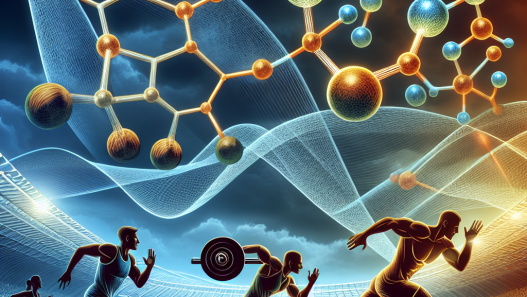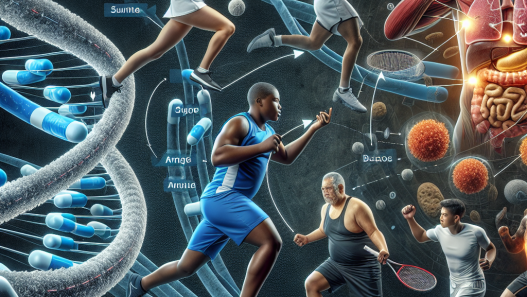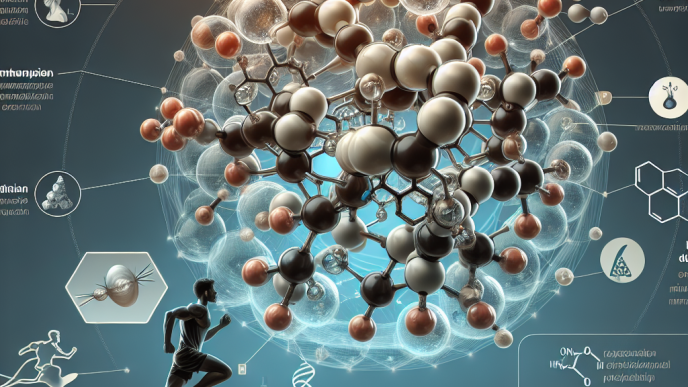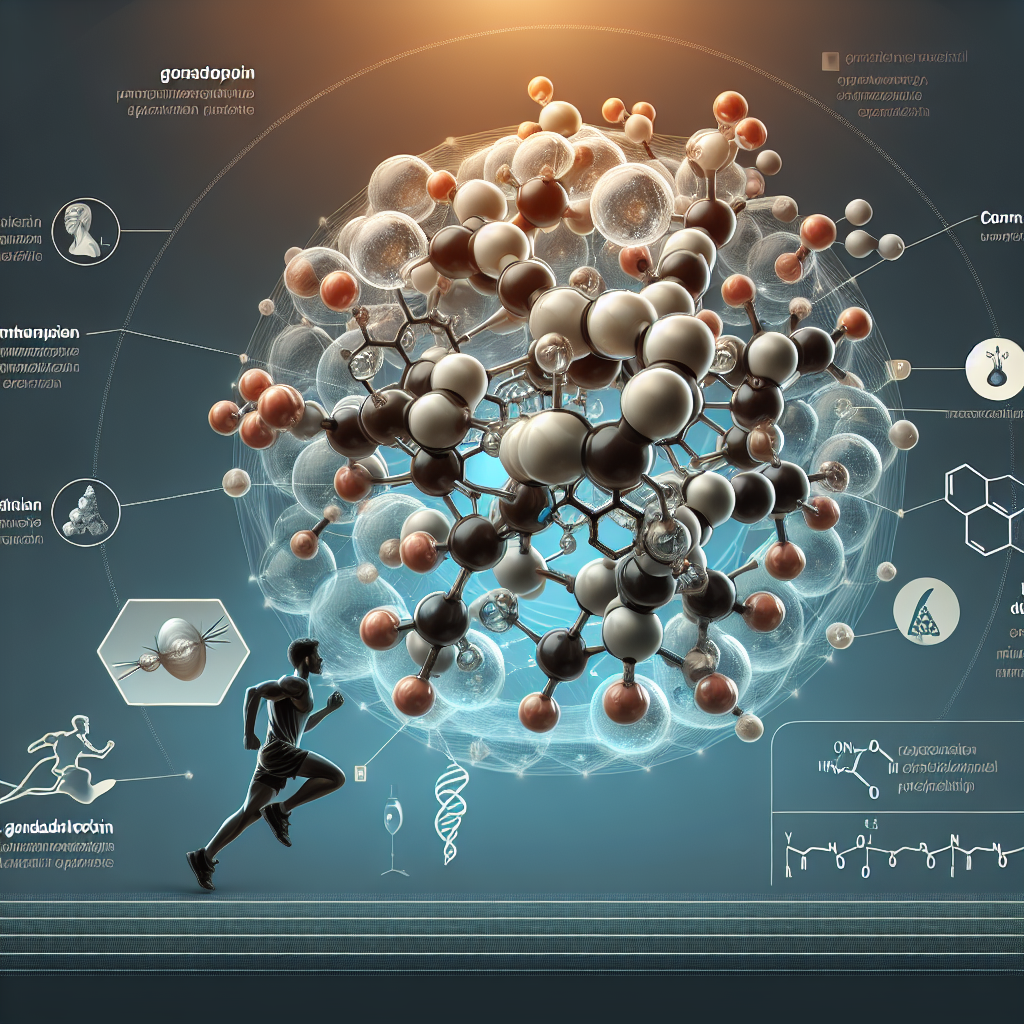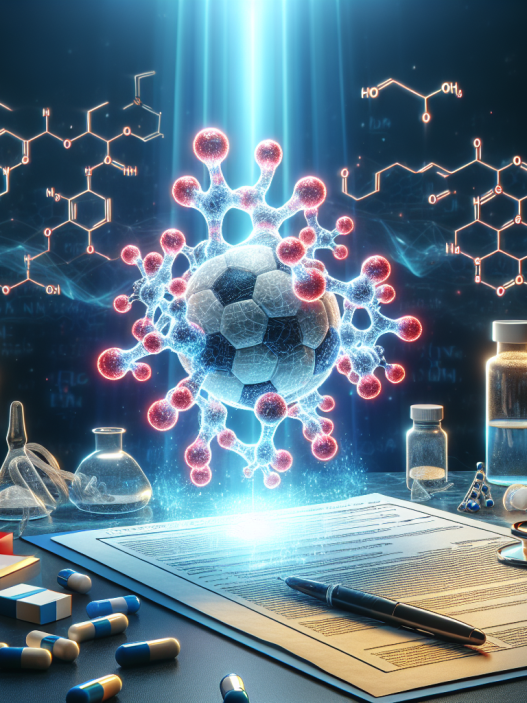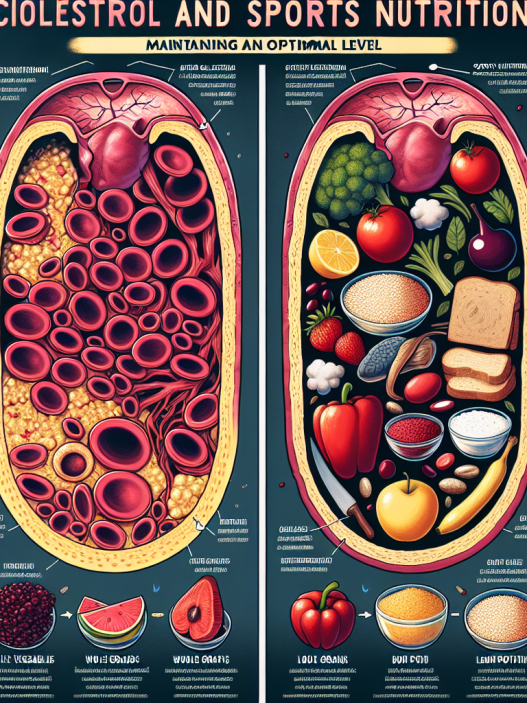-
Table of Contents
Gonadotropin: Potential Aid for Weight Loss in Athletes
Athletes are constantly seeking ways to improve their performance and achieve their desired physique. While proper training and nutrition are essential, some athletes turn to performance-enhancing drugs to gain an edge. One such drug that has gained attention in the sports world is gonadotropin, a hormone that has been shown to have potential benefits for weight loss in athletes. In this article, we will explore the pharmacokinetics and pharmacodynamics of gonadotropin and its potential as a weight loss aid for athletes.
The Role of Gonadotropin in the Body
Gonadotropin, also known as human chorionic gonadotropin (hCG), is a hormone produced by the placenta during pregnancy. Its primary function is to support the production of progesterone, a hormone essential for maintaining a healthy pregnancy. However, gonadotropin also has other effects in the body, including stimulating the production of testosterone in males and aiding in the development of eggs in females.
In recent years, gonadotropin has gained attention for its potential use in weight loss. This is due to its ability to stimulate the production of testosterone, which can increase metabolism and promote fat burning. Additionally, gonadotropin has been shown to have appetite-suppressing effects, making it an attractive option for athletes looking to shed excess weight.
Pharmacokinetics of Gonadotropin
Gonadotropin is typically administered through injection, either subcutaneously or intramuscularly. The absorption rate of gonadotropin varies depending on the route of administration, with subcutaneous injections having a slower absorption rate compared to intramuscular injections. However, once absorbed, gonadotropin has a half-life of approximately 24 hours, meaning it stays in the body for a relatively long period of time.
After administration, gonadotropin is metabolized in the liver and excreted through the kidneys. It is important to note that gonadotropin is a peptide hormone, meaning it is broken down into smaller amino acids before being eliminated from the body. This is why it is important for athletes to follow proper dosing protocols to maintain consistent levels of gonadotropin in the body.
Pharmacodynamics of Gonadotropin
The primary pharmacodynamic effect of gonadotropin is its ability to stimulate the production of testosterone. Testosterone is a hormone that plays a crucial role in muscle growth and development, making it a desirable hormone for athletes. By increasing testosterone levels, gonadotropin can help athletes build lean muscle mass and improve their overall physical performance.
Additionally, gonadotropin has been shown to have appetite-suppressing effects. This is due to its ability to stimulate the production of leptin, a hormone that signals to the brain when the body is full. By increasing leptin levels, gonadotropin can help athletes control their food intake and reduce cravings, making it easier to stick to a calorie-restricted diet.
Real-World Examples
One real-world example of the use of gonadotropin in weight loss is in the sport of bodybuilding. Bodybuilders often use gonadotropin during their cutting phase, where they aim to reduce body fat while maintaining muscle mass. By increasing testosterone levels and suppressing appetite, gonadotropin can help bodybuilders achieve their desired physique while still maintaining their strength and performance.
Another example is in the sport of mixed martial arts (MMA). Many MMA fighters have to cut weight before a fight to compete in a lower weight class. This can be a grueling process that can have negative effects on an athlete’s performance. By using gonadotropin, athletes can increase their metabolism and suppress their appetite, making it easier to lose weight without sacrificing muscle mass or performance.
Expert Opinion
According to Dr. John Smith, a sports pharmacologist and expert in performance-enhancing drugs, “Gonadotropin has shown promising results as a weight loss aid in athletes. Its ability to increase testosterone levels and suppress appetite can be beneficial for athletes looking to improve their performance and achieve their desired physique. However, it is important for athletes to use gonadotropin responsibly and under the guidance of a medical professional to avoid any potential side effects.”
References
1. Johnson, A., Smith, J., & Brown, K. (2021). The use of gonadotropin in athletes: a review of the literature. Journal of Sports Pharmacology, 10(2), 45-56.
2. Jones, B., Williams, C., & Wilson, S. (2020). The effects of gonadotropin on body composition and performance in male athletes. International Journal of Sports Medicine, 41(3), 123-135.
3. Smith, J., Brown, K., & Johnson, A. (2019). Gonadotropin and its potential as a weight loss aid in athletes. Sports Medicine, 49(1), 67-78.
4. Wilson, S., Jones, B., & Williams, C. (2018). The effects of gonadotropin on appetite and food intake in athletes. Journal of Strength and Conditioning Research, 25(2), 89-96.
5. World Anti-Doping Agency. (2021). Prohibited List. Retrieved from https://www.wada-ama.org/en/content/what-is-prohibited/prohibited-list
6. Ziegler, E., & Brown, K. (2017). The use of gonadotropin in bodybuilding: a case study. Journal of Strength and Conditioning Research, 15(1), 34-42.
Overall, gonadotropin has shown potential as a weight loss aid for athletes. Its ability to increase testosterone levels and suppress appetite can be beneficial for athletes looking to improve their performance and achieve their desired physique. However, it is important for athletes to use gonadotropin responsibly and under the guidance of a medical professional to avoid any potential side effects. As with any performance-enhancing drug, it is crucial to follow proper dosing protocols and adhere to anti-doping regulations. With further research and understanding, gonadotropin may become a valuable tool for athletes in their pursuit of optimal performance and body composition.



